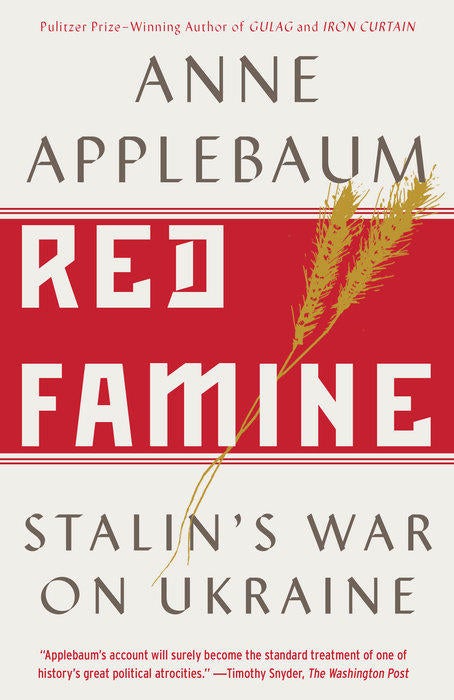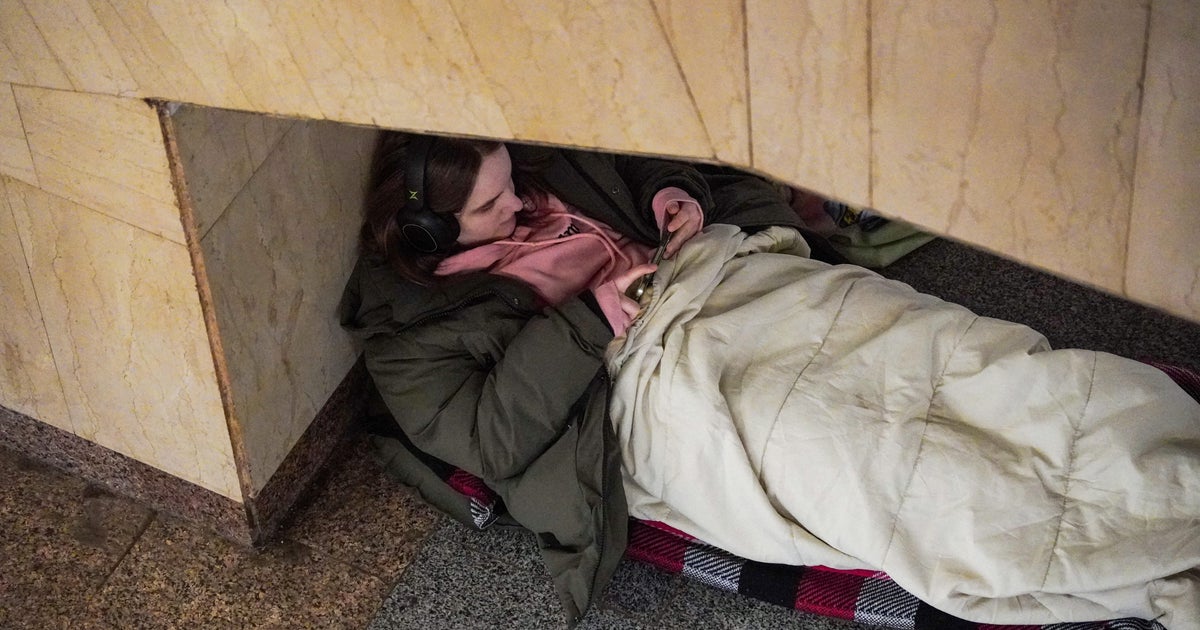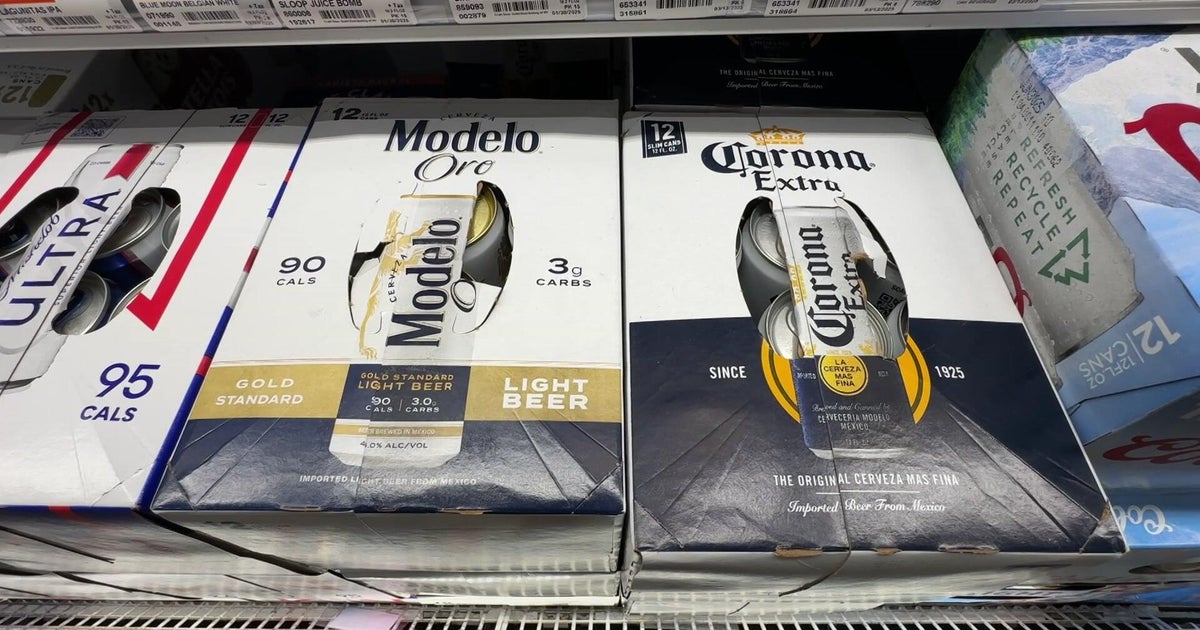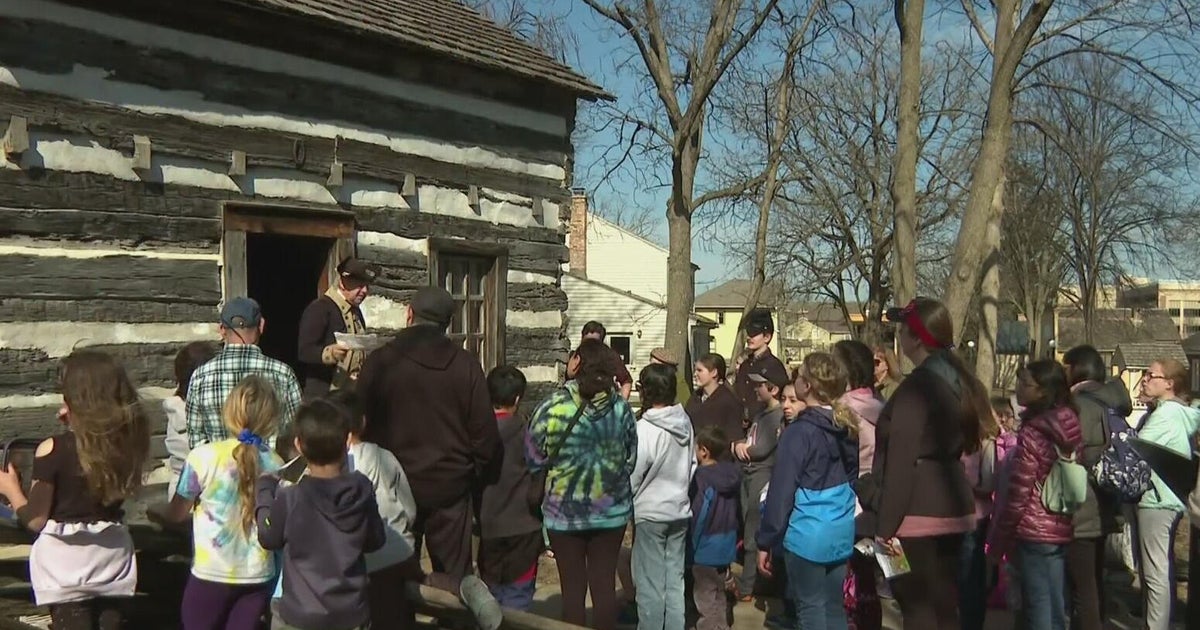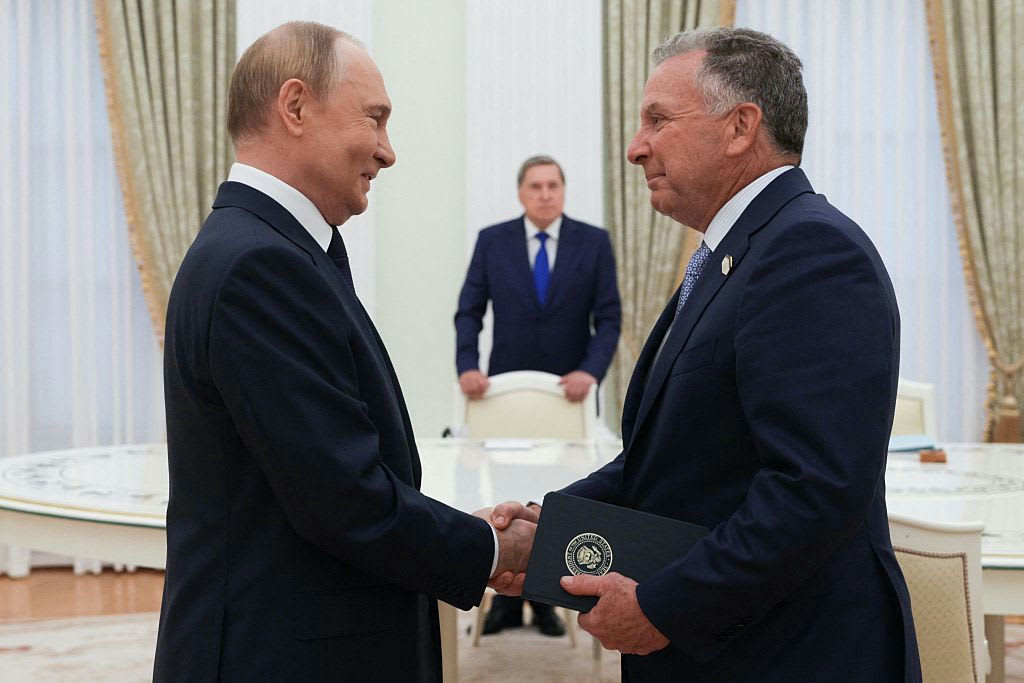The long history of Russia's efforts to subjugate Ukraine
Since its independence in 1991, Ukraine has made many hard-earned gains, and tried to lose at least one little thing.
Correspondent Mo Rocca asked, "When I was growing up, we called it 'The Ukraine.' Why did that change?"
Pulitzer Prize-winning historian Anne Applebaum, who has written extensively about Russia and Ukraine, said, "The Ukraine, the use of that the, I think, was a reflection of the fact that people weren't quite sure what Ukraine was. And Ukrainians especially in the last 30 years made a great push to get English speakers to stop doing that, because to them they find that patronizing.
"It's Ukraine. It's a country. It has its own state now. It's not 'The Ukraine' any more than you would say 'The Russia' or 'The Germany' or 'The France.'"
Not according to Russia's President Vladimir Putin, who all but denies that Ukraine is its own country. "A stable statehood hasn't been built in Ukraine," Putin said this past week, trying to justify his invasion of Russia's neighbor. "It is an inherent part of our own history, culture, [and] spiritual space."
Russia and the country it often calls its "little brother" can claim common parentage … way, way back.
"In the late Middle Ages, there was a civilization called Kievan Rus, based in Kiev," said Applebaum. "Both Russia and Ukraine trace their origins back to that state."
That civilization is said to have been founded in the ninth century by Vikings. "But it's, of course, many centuries ago, and much has happened since then," Applebaum said. "In that sense, you know, the Vikings also had a role in the creation of England, and the coasts of France. And it's a very long time ago."
"Right, so that if the Vikings today claimed ownership over France, it would be kind of a dubious claim?" asked Rocca.
"Right. I mean, it's as dubious for the Russians to claim control over Ukraine as it would be for the Vikings to claim control over Ukraine, or indeed over France or England."
Fast-forward to 1793, when the bulk of what is now Ukraine became part of the Russian empire under Catherine the Great. "Ukraine was a little bit like Ireland used to be within the United Kingdom," said Applebaum. "It was a subordinate part of a greater whole, of a greater empire."
During the revolution that ushered in the Soviet Union, Ukraine fought for independence. It lost, and in 1922 was subsumed inside the communist state. "But it was a separate entity from the beginning," said Applebaum. "It always had its own language. It always had its own status inside the USSR."
But within a decade, Soviet leader Joseph Stalin, fearful of an independent-minded Ukraine, brought down the hammer: "He had decided to take the land away from the peasants and give it to the state. And very quickly, there was very strong opposition to that in Ukraine."
Stalin would brook no opposition. The atrocity that began in 1932 would come to be known as the Holodomor – Ukrainian for "extermination from hunger." "The Holodomor was an artificial famine," Applebaum said. "That means that it was a famine caused not by crop failure, not by insects or drought; it was a famine that was created by the Soviet state. Local activists went from house to house in rural Ukraine and confiscated food. The idea was to take every last scrap of food, and they knew, of course, that that meant people would die, and they anticipated that would happen."
Between 1932 and 1933, some four million Ukrainians starved to death.
In the 1984 documentary "Harvest of Despair," journalist Vasyl Sokil recalled the horror: "They saw a child picking a stalk of wheat, trying to eat those unripe grains. That was a very serious crime. This was a government order, to punish anyone, even to death by execution."
Applebaum said, "People survived by eating frogs, toads, mice. They ate the bark of trees."
Rocca asked, "Is it true that some people resorted to cannibalism?"
"Yes. It was actually recorded by the authorities at the time. And of course, that means that in Moscow, people knew that there was cannibalism in Ukraine, yes."
A second wave of Stalinist terror involved the arrest and murder of Ukrainian intellectuals, artists, even writers of dictionaries.
"And is it right that they eliminated a letter from the Ukrainian alphabet?" asked Rocca.
"Yes. They changed the way the language was written, again so that it would be more similar to Russian."
"You know, you've mentioned so many horrific details; that detail I find so humiliating, to take the language and expunge a letter?"
"The attempt to eliminate Ukrainian-ness and the sense of it, of a separate identity and the sense of nationhood, has really been a Russian policy since the 19th century," said Applebaum. "It was a Czarist policy. Later it was Stalin's policy, and now it's Putin's policy.
"Putin believes that an independent, sovereign, democratic Ukraine is a threat to him personally and to his personal power. The one thing that Putin genuinely fears is grassroots democratic movements, and the most important way that he can push back against them is to eliminate that Ukrainian state."
"Are a lot of Ukrainians today thinking, 'Not again'?" asked Rocca.
"There's a famous poem by Shevchenko, the Ukrainian national poet called 'Calamity Again.' And [it] begins exactly with this idea: just as we were beginning to get along, calamity strikes again. Its democracy was solidifying. Its sense of nationhood was growing stronger. And now this disaster has befallen them and this feeling that they may be dragged back into some horrific Stalin-era or Czarist-era nightmare must be tormenting a lot of them."
For more info:
- anneapplebaum.com
- "Red Famine: Stalin's War on Ukraine" by Anne Applebaum (Anchor), in Trade Paperback, eBook and Audio formats, available via Amazon and Indiebound
- Photos: Alexander Wienerberger (© Samara Pearce)
- Ukraine (Official government website)
Story produced by Robert Marston. Editor: Steven Tyler.
See also:
